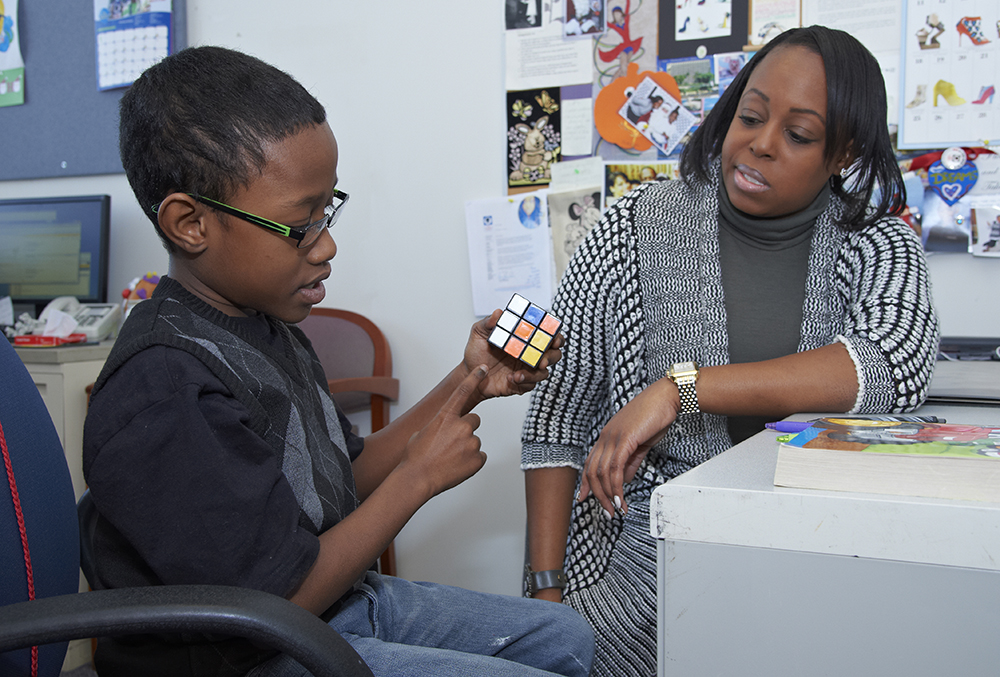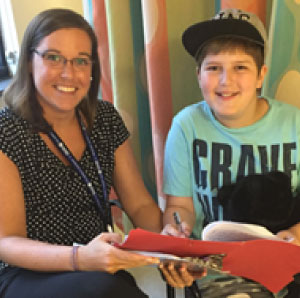Sickle Cell Patient Program

When an increasing number of children with the blood disorder Sickle Cell Disease were referred to our centers, we decided to add a program to specifically address the need. In this program, our patients receive personalized care with nurses and social workers dedicated to treating this particular disease. We also educate the patient and the family on managing their illness in order to remain healthy in the long-term. We provide this pediatric Sickle Cell Program at each of our centers.
What is sickle cell?
Sickle cell is an inherited disease. It is not contagious, and a person who is born with sickle disease cannot "grow out of it." Although most people think of sickle cell as a disease that strikes African-Americans exclusively, it also affects a small percentage of people of Hispanic, Latin American, Indian, and Mediterranean descent, where it can appear as a related disease called thalassemia. The State Department of Health now tests all newborns in New Jersey for these diseases.
In patients with sickle cell disease, blood cells mutate from the normal, round shape into cells shaped like sickles or crescent moons, in a process know as "sickling." These sickled cells become stuck in blood vessels. The result is blocked blood flow and severe pain, as well as potential damage to organs, muscles, and bones.
What happens to children with sickle cell?
Most children with sickle cell disease feel and look fine most of the time. When they do have medical problems, they can become sick very quickly and with little warning. Early recognition and treatment are extremely important because babies with sickle disease are at risk of developing life-threatening infections and other health crises.
The complications of sickle cell disease—both the painful and the life threatening—cannot reliably be completely prevented. Even children who "follow all of the rules" about dressing warmly, drinking plenty of fluids, and not over-exerting themselves may still suddenly develop excruciating pain crises, acute chest syndrome, or strokes. Most of the medical care involves treating or—preferably—preventing flare-ups. This means that one of the most important aspects of caring for these children is educating families about the illness and how to prevent crises.


